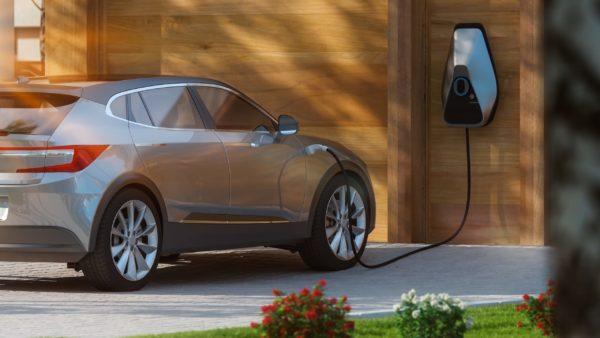
Everything You Need to Know About EV Charging
Vehicles with electric engines are growing in popularity, and this comes with a wide range of questions about charging them. There are many misconceptions about EV charging, so here are the answers to some frequently asked questions.
How Long Does It Take to Charge an Electric Vehicle?
The time it takes to charge an electric vehicle entirely depends on the type and size of the battery and the charger you’re using. Generally speaking, it takes between eight and 24 hours to fully charge an EV on a Level 1 charger, while a Level 2 and DC Fast charger can charge an EV in around three to five hours.
For some EVs, a Level 3 DC Fast charger can get you up to an 80% charge in as little as 30 minutes. This is the fastest way to charge an EV, but it’s important to note that these chargers are often expensive and hard to find.
What Type of Charger Do You Need for Your Electric Vehicle?
The charger type you need for your electric vehicle will depend on the battery’s voltage and any features that the car manufacturer may have included in its charging system. Generally, most EVs are equipped with a Level 1 charger that plugs into a standard 120V wall outlet.
For faster charging times, you can upgrade to a Level 2 charger that plugs into a 240V outlet. This charger will charge your EV much faster than a Level 1, but it’s more expensive. Finally, some EVs may also be equipped with a DC Fast charger that can charge your EV in as little as 30 minutes.
Do You Need Special Equipment to Charge an Electric Vehicle?
No, you don’t need any special equipment to charge your electric vehicle. All you need is an appropriate charger and a standard 120V wall outlet or 240V outlet, depending on the charger you use. Check your EV’s manual to ensure you’re using the right type and voltage of charger for your vehicle.
Are EV Chargers Expensive to Install or Maintain?
EV chargers can vary in cost depending on the type and features you’re looking for. A Level 1 charger is usually the most affordable option, while Level 2 and DC Fast chargers are more expensive. In addition to the cost of the charger itself, you may need to pay for the installation of wiring or other necessary equipment.
Most EV owners find that charging their vehicle costs much less than filling up a gas tank, making EV chargers a cost-effective option in the long run. Additionally, most EV chargers require little to no maintenance.
Do EV Chargers Need to Be Connected to the Grid?
Yes, all EV chargers need to be connected to a power grid in order to charge your car. If you live in an area with limited access to the power grid or want to use renewable energy to charge your vehicle, you may need to invest in a special off-grid charger.
These chargers are usually more expensive than standard chargers, but they allow you to charge your electric vehicle using renewable energy sources such as solar power.
Can You Use Your EV Charger to Charge Other Devices?
No, your EV charger isn’t designed to charge other devices. You should only use it to charge your electric vehicle. If you need to charge other devices, then you should use the appropriate charger for that device.
Using the wrong charger to charge any device can be dangerous and may even result in damage to the device or charger. Also, using your EV charger with other devices could void your warranty, so it’s important to check your EV’s manual before attempting to charge anything else with the same charger.
Can You Use Your EV Charger to Charge Two Cars at Once?
No, you can’t use a single EV charger to charge two cars simultaneously. You’ll need to have a separate charger for each electric vehicle if you want to be able to charge them both at once. Most EV chargers aren’t designed to be connected to multiple cars at once, so it’s important to check your charger’s manual to ensure it’s compatible with your vehicle before attempting to use it.
Can You Use Your EV Charger in Any Type of Weather?
Yes, you can use your EV charger in any type of weather. Just be sure to check your charger’s manual to ensure it’s rated for the type of weather you expect and that it’s properly insulated to protect against water or moisture damage.
However, if there’s a chance of lightning in your area, then it’s important to unplug the charger and disconnect it from the power grid before any storms start. This will help protect your charger from sudden power surges or lightning strikes.
Do You Need to Unplug Your EV Charger After Each Use?
No, you don’t need to unplug your charger after each use. Most EV chargers are designed to remain plugged in and will automatically shut off when the battery is full. This helps to save time and energy since you don’t have to remember to unplug the charger each time you use it.
If your charger has a power-saving mode, you may want to unplug it after each use to save electricity. This can help reduce your energy costs and may even qualify you for utility rebates or incentives. It’s also important to unplug your charger during prolonged inactivity or if you’re going on a long trip, as this will help to protect your charger from any potential power surges or electrical outages.
Can You Modify an EV Charger?
No, you shouldn’t attempt to modify your EV charger in any way. Modifying the charger can be dangerous and void your warranty or damage the charger itself. If you have any issues with your charger, it’s best to contact the manufacturer or a qualified technician for assistance. They can diagnose the problem and offer any necessary repairs or replacements.
Additionally, you should always consult a certified electrician for advice if you have any questions about EV charging safety or installation.
How Often Should You Inspect Your EV Charger?
It’s important to inspect your EV charger regularly to make sure that it’s in good working condition. This includes ensuring no loose connections, wires, or other components and checking for signs of corrosion or other damage. You should also regularly check for any signs of fraying, cracking, or pitting in the power cord and plugs and check the charger’s ground fault circuit interrupter (GFCI) for proper operation. It’s also a good idea to test the charger’s output voltage and current periodically to ensure it’s functioning properly. If you notice any signs of damage or malfunction, you should contact the manufacturer or a qualified technician for assistance.
EV charging can be a great way to reduce your carbon footprint and save money on fuel costs. However, following all safety guidelines and instructions when using your EV charger is important. Check your charger’s manual for additional instructions, and be sure to consult a qualified technician if you have any questions or concerns. Doing so will help ensure you get the most out of your EV charging experience and keep yourself, your vehicle, and your home safe.
Black-Haak is a heating, cooling, plumbing, and electrical services company in Fox Valley, WI, that offers various services, including surge protection, EV charger installation and inspection, plumbing, and more. Contact Black-Haak today to learn more about how we can help you with your EV charging needs.

